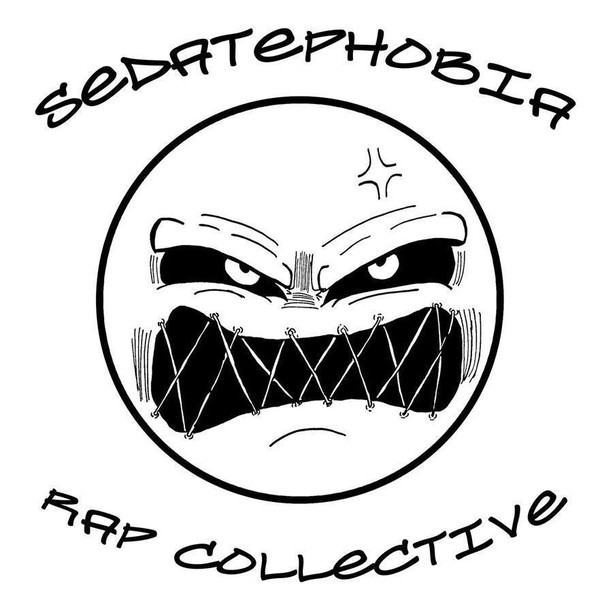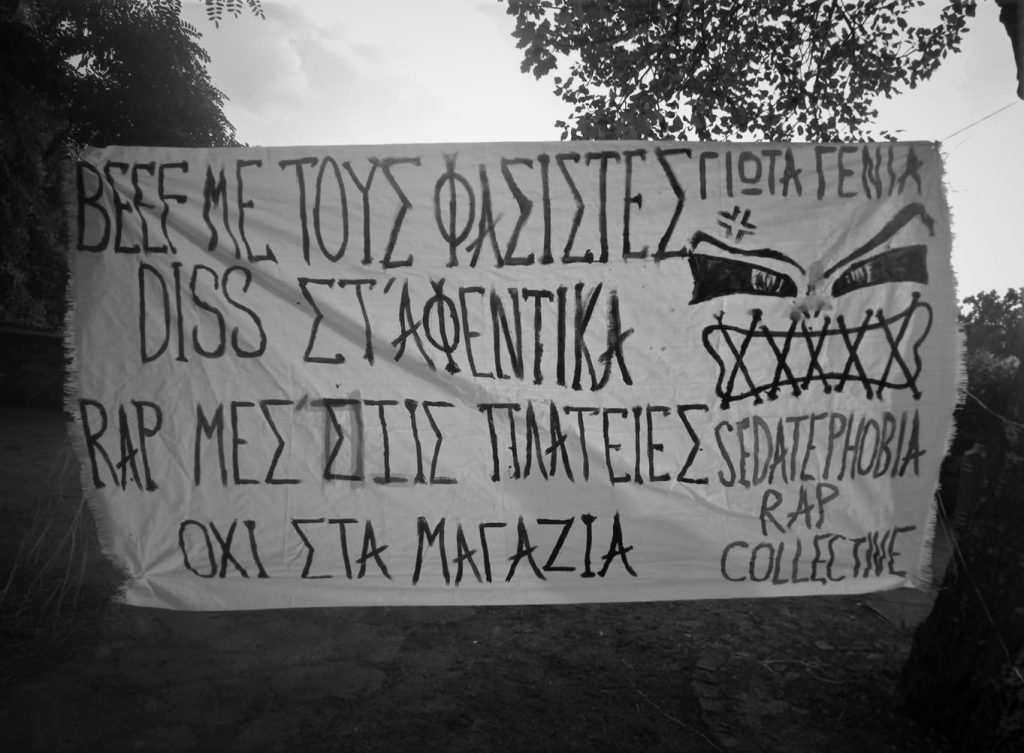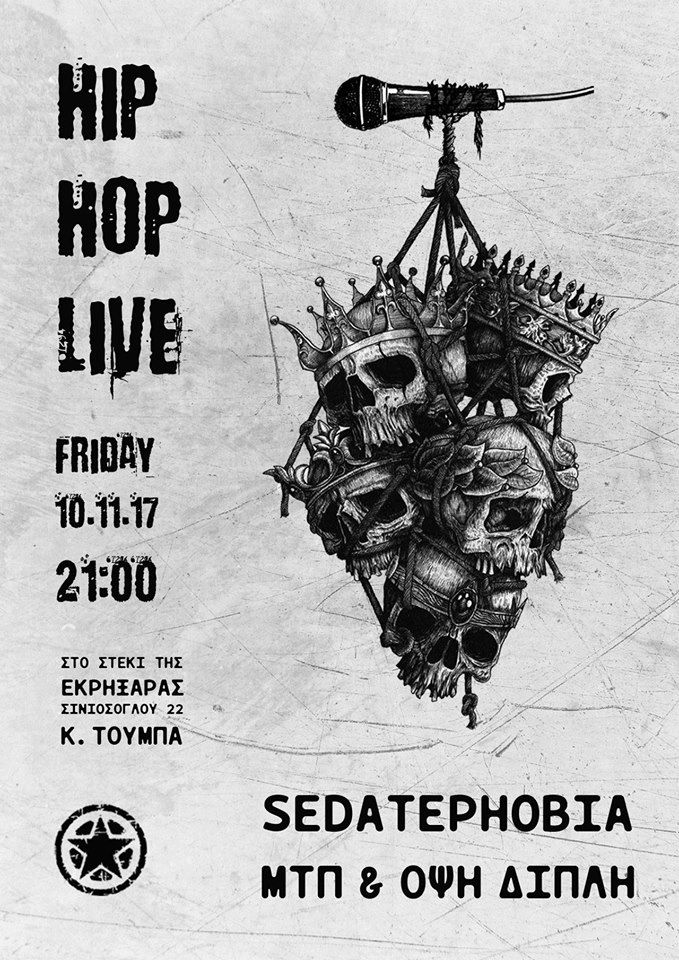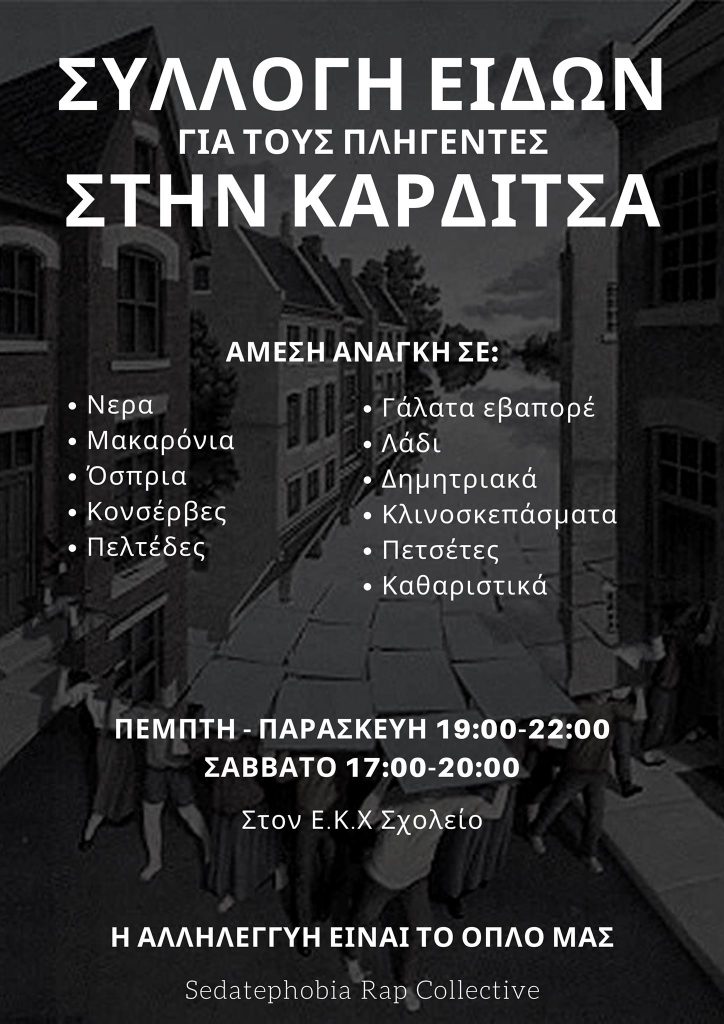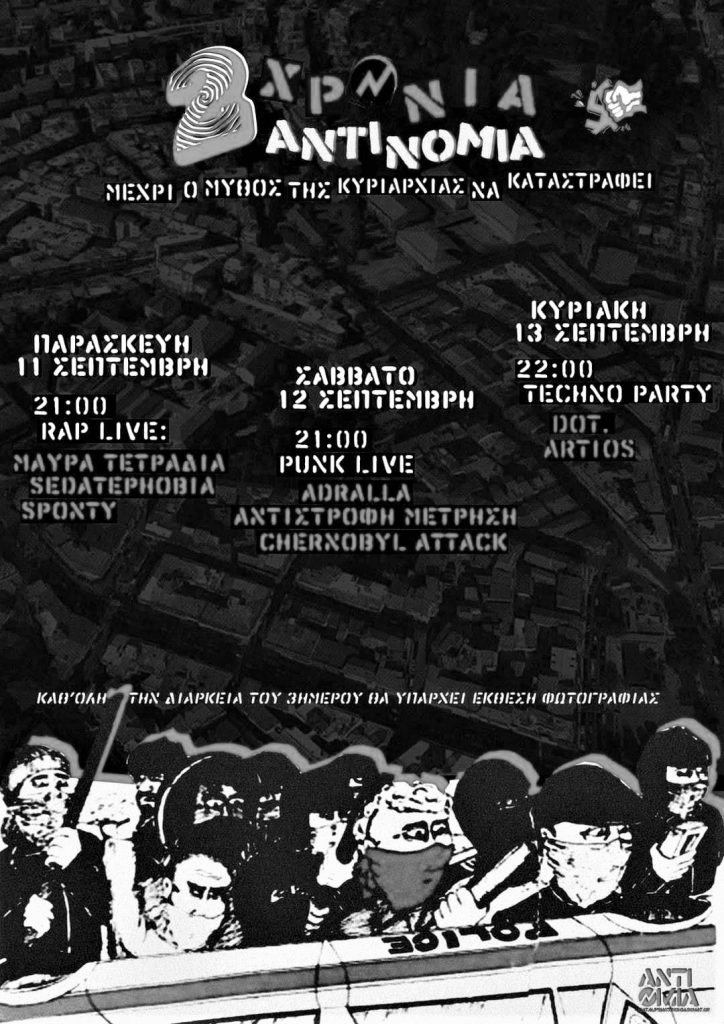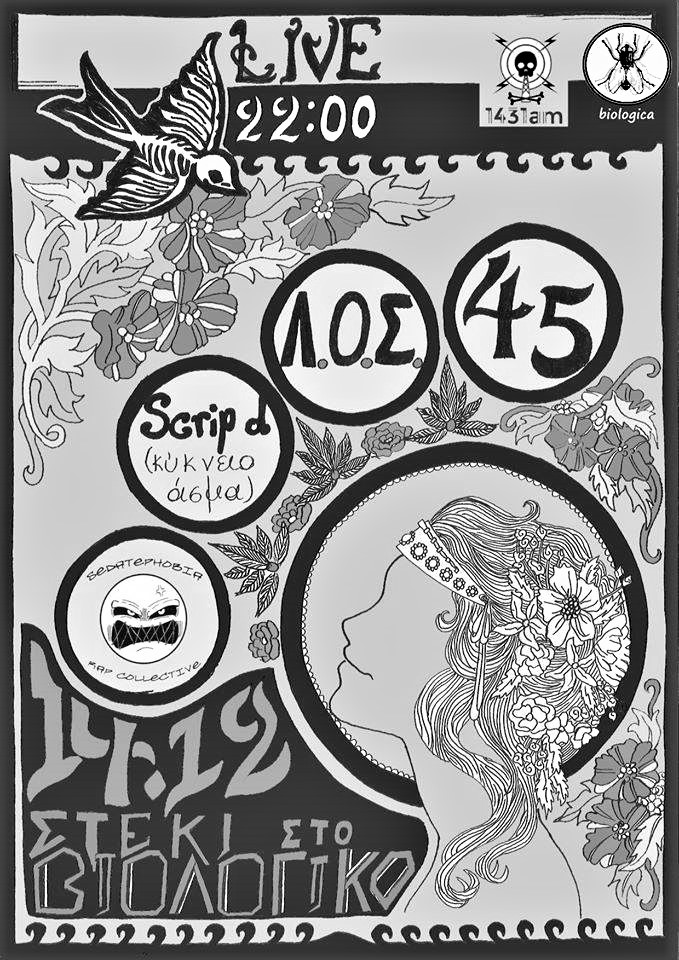Since our first trip to Greece, we have always been impressed by the power of the Do It Yourself movement in music. In Athens and Thessaloniki, some of the open-air concerts can gather more than a thousand people. All without the slightest authorization. In the streets, on squares or in parks, especially in the rap scene. It is an independent rap scene that is particularly politicized, close to anarchist ideas, and puts forward a self-managed an anti-authoritarian functioning.
At a time when these initiatives are systematically repressed for so-called health reasons (repeated squat evictions, ultra-violent police raids in the streets, arbitrary arrests …), we wanted to return to the history of this DIY scene, and let Sedatephobia, a collective particularly involved in Thessaloniki, speak. | By Alkistis A. Draw: Mademoiselle Pin (Trad: Alkistis A. & Julie B)
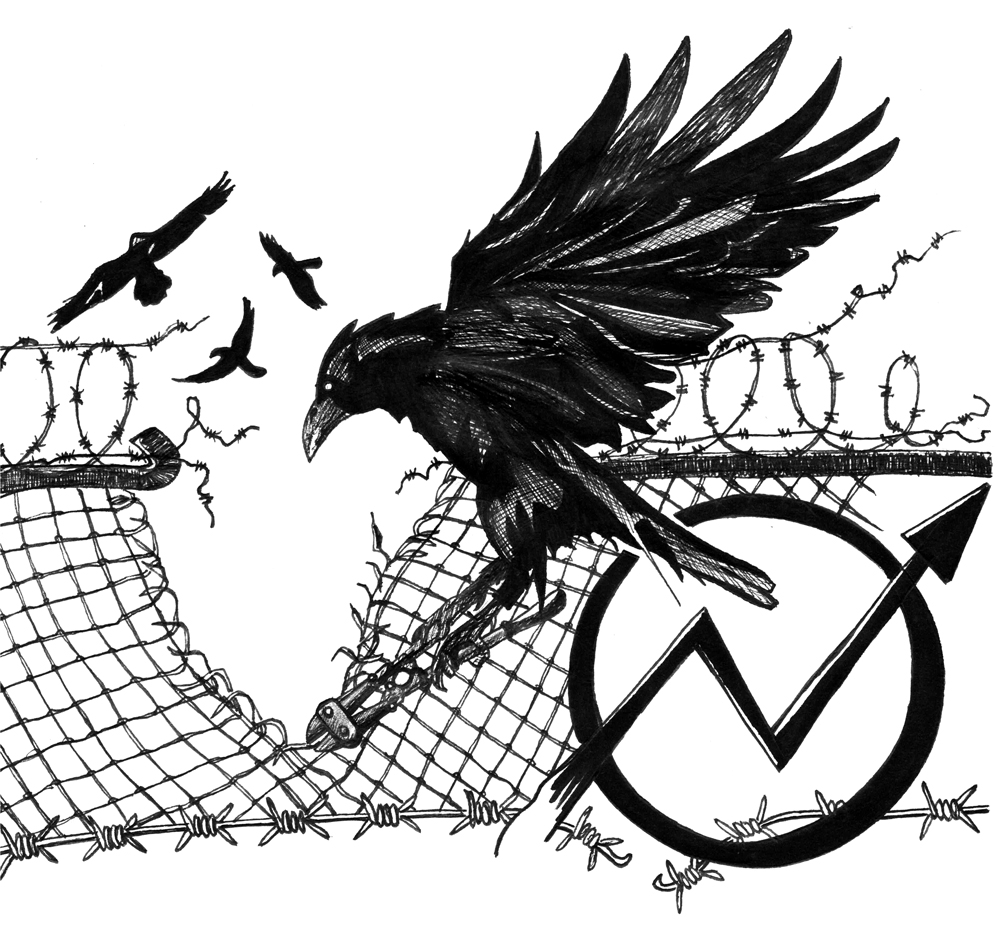
In Greece, we start talking about DIY in the late 80’s, a period of growth of the squat movement linked to the questioning of a part of the punk community, which begins to assume political positions in a clearer way.
During the fall of 1989, some punks occupied a neo-classical building on Amalias street, in order to have their own space to organize concerts. This is how the “Villa Amalias” (soon to be relocated) was born in Athens.
A political space of common life and artistic creation where actors from different disciplines of anti-culture come together.
It is a real rallying point for the anarchist, anti-authoritarian community and the DIY culture in general. The creation of squats and self-organized places in Athens and Thessaloniki at that time gave a new aspect to political revendication and allowed self-organization to find its place.

More precisely, the terms of the DIY were established in the mid-90s, when Villa Amalias bought its own sound equipment and removed the entrance fee by establishing a free pricing policy. It is at that time that the identity of the DIY culture will be built by adopting an anti-commercial approach, and where all the participants turn their backs on the idea of profit. At the same time, this approach questions every artistic authority and the very notion of “artist”; theoretically, the artist would refuse to represent themself as an elite (the logic at the base of capitalist ideology), because this would immediately place them above the mass of people.
This new vision is realized at the practical level, at the very heart of the stage space. It is usually assumed that artists are placed on the stage (above) while the audience is in the pit (below). This involves a deconstruction of roles, between organizers, artists and audience. There is no room for managers, security staff, mediators, or any form of hierarchical relationship. People exchange, mix and create together.
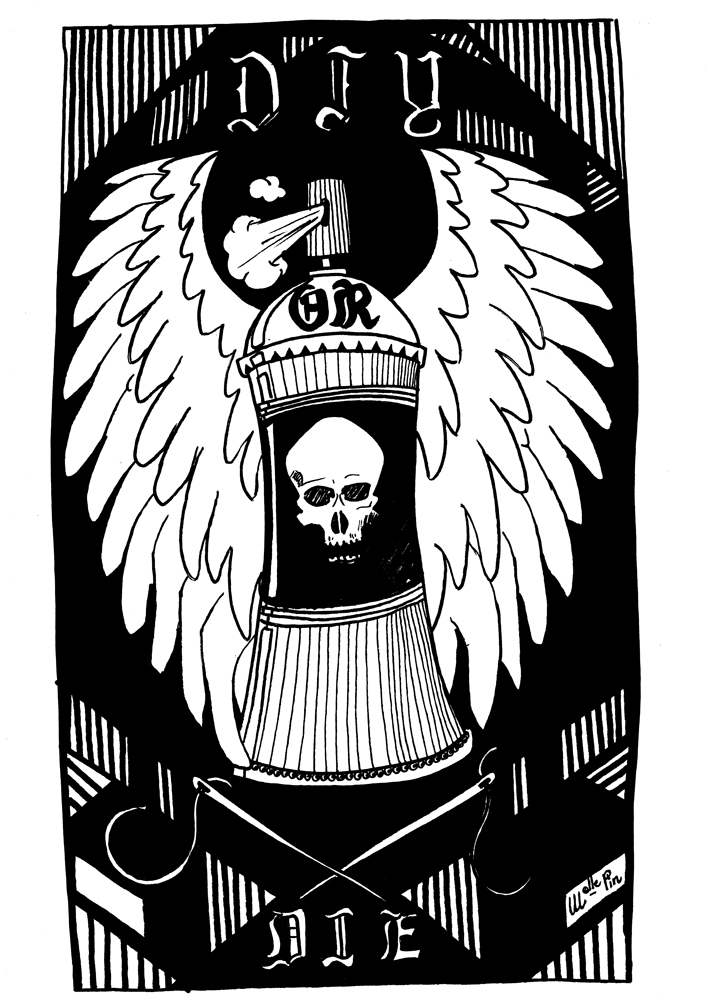
The political character of the DIY movement is therefore unavoidable, as its political dimension has historically been its founding element. The organization of horizontal and anti-hierarchical structures, the anti-fascist, anti-racist mentality, collective procedures and decision-making are written in its DNA. It is a political act, a radical way of life that comes to prolong an identity politically anchored in the bases of the movement.
The historical link of punk with the self-organized scene has not prevented other musical styles and other forms of creation from contributing to it. In Greece, punk started before rap took over.
Eventually, this way of life found many more places to evolve. It has grown, rebuilt and enriched itself. It has opened dialogue around new problematics (such as gender related questions, sexism, homophobia and transphobia, without forgetting that there is still work to be done to overcome its own weaknesses) and it continues to fight constantly against repressive policies aiming at evacuating these spaces.
In greek cities, there is always something happening, and it always takes place in a form of proximity: in the square of your neighborhood, in your faculty, in squats or in alternative and self-managed cultural places. You can find events, debates, film projections, performances but mostly hip-hop concerts with events dedicated to financially supporting an important cause.
This environment is always accessible to all those who are interested in this commitment, sharing a common political base, always antifa and never tolerant of authoritarian behavior.

Today, many rappers from Greece continue to join this fight. This is the case of Sponty, rapper and member of the music-political collective Sedatephobia.
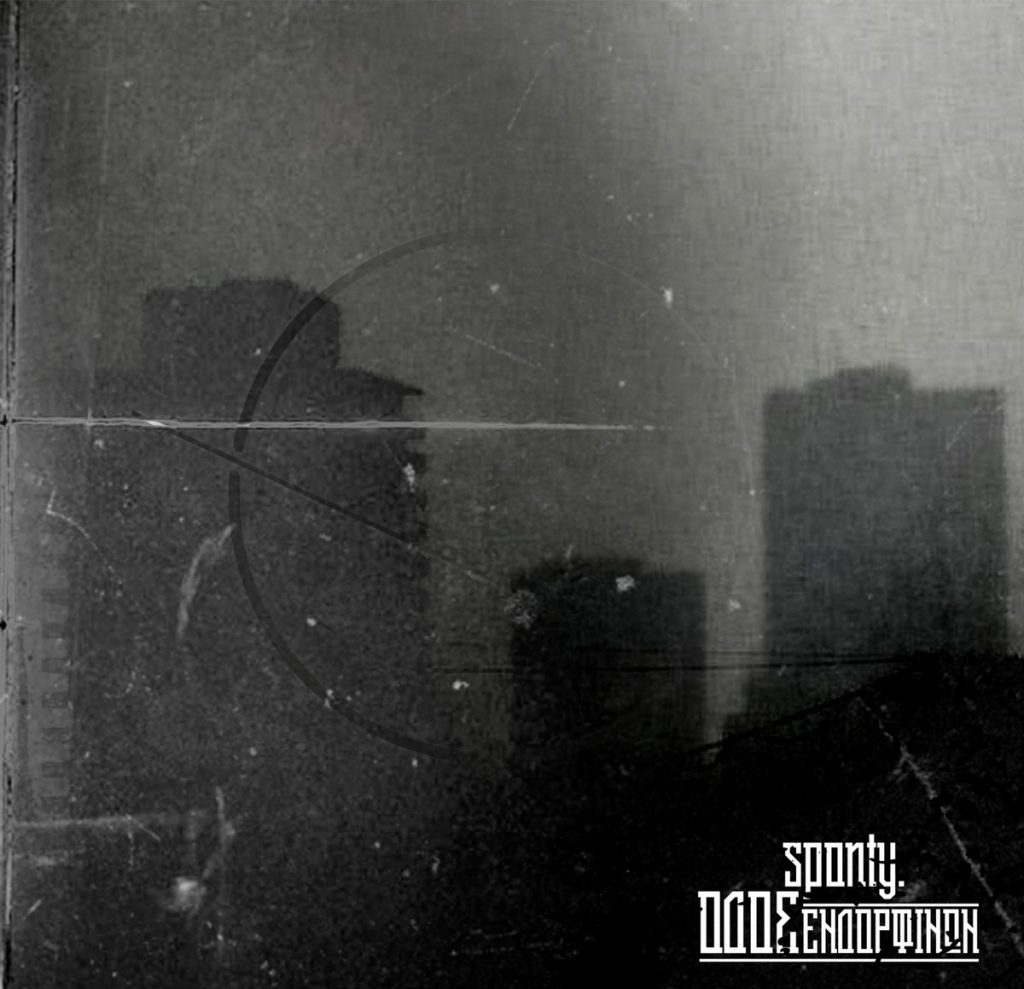
Sponty comes from Serres, a city located in the north of Greece. After spending years as a listener, he started rapping at the age of 15. He has recently released two CDs and an EP called “Rue endorphines” (Οδός Ενδορφινών). A “hip hop working class”, militant and committed. His lyrics are politically powerful, psycological, and sometimes poetic. In the production and mixing of the latest EP, we find Zero 2552 with the participations of Nosfer, Antignomos and En Lefko.
Sedatephobia
This musical and political collective is made up of hip-hop activists including djs, sound engineers and beatmakers. The group also takes charge of organizing DIY events, either in places belonging to the movement (self-managed centers), or wildly, in squares or in the street.
Far from battles or competition-based ways of meeting, the group focuses on common and collective creation. We asked them about this and their message is unequivocal :
“We are girls and guys who don’t like fascists, racists, nationalists, sexists, homophobes, transphobes. Through our words and actions, we support an opposition movement against the state and the capitalist system by supporting the DIY music scene. We love rap, which for us represents creativity and solidarity. It is a channel for our need to communicate. A rap that can describe the feelings of loneliness and suffocation that life in the city provokes us. A music with social, psychological, philosophical, political lyrics with everything that makes us think and act. “
Sedatephobia Collective
The collective has also set up its own label. Each artist (member of the collective or not, as long as he agrees with the commitments and the identity of the group), can use it to produce his album. It also has its own equipment, so that interested artists can record songs and broadcast them.
Beyond their musical production, the members of the collective co-organize events with other groups in the city, including people who support refugees and immigrants by collecting food and clothing. In several neighborhoods of Thessaloniki, they set up bars and cook free price meals around jam nights.

SPONTY (ITW)
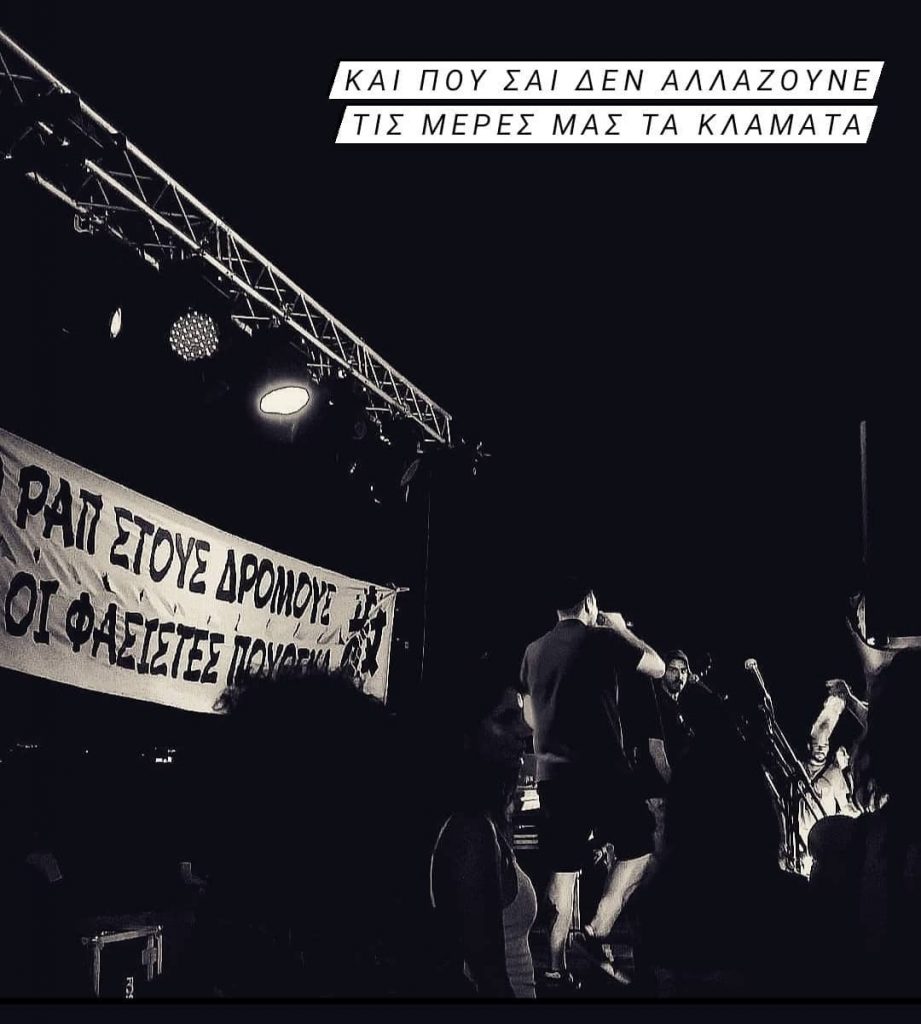
What do you think about the evolution of the DIY rap scene in Greece?
The evolution of DIY rap is remarkable in the last few years. I could give the example of the event that took place on January 4th in the squat of Papoutsadiko. On that day, almost all the DIY groups in Greece came together to organize a concert. What was produced was incredible, because several collectives got together for an important cause (in this case, an anti-repression fund for the legal needs of a companion). The power and the atmosphere were great because we were able to get a strong message across; For us, hip-hop is not that competitive thing where one rapper has to show that he is stronger than the other. We showed that all together, we could create something positive, far from competitive bullshit, superiority, star mentality or any kind of hierarchy. That day was important for me, because the DIY proved its presence, its strength and its ability to build something beautiful. It’s really rare and I hope we can continue to create things like that!
What is remarkable for people outside of Greece is the popularity of this culture. How is it possible that it has such a large audience? How easy is it to realize events?
The current powerful presence is super important because it shows young people who are interested in rap that they can find this culture in the square of their neighborhood.
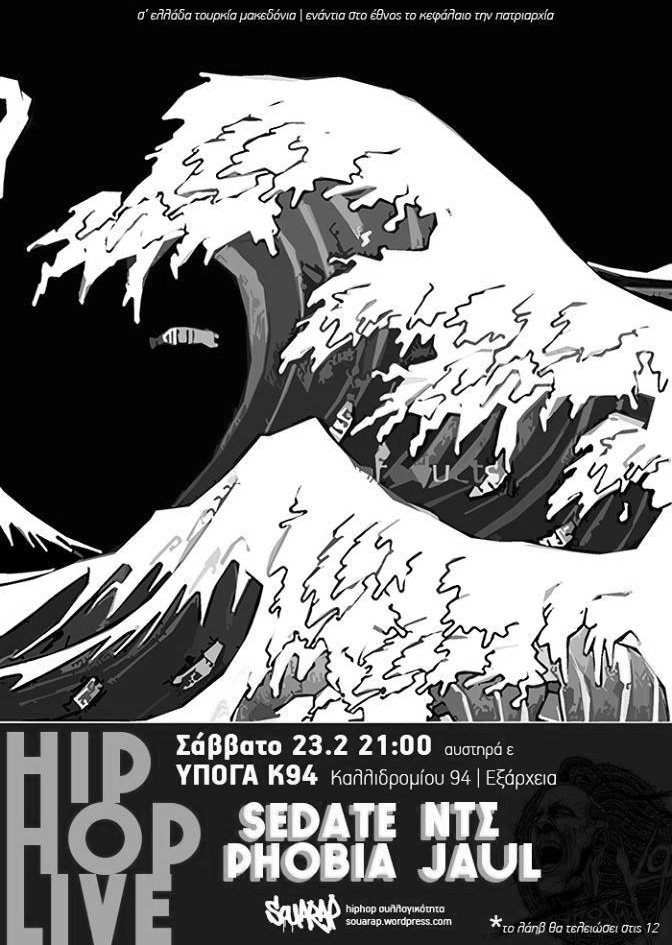
Right next to you and not necessarily in the big club that organizes concerts. I think that DIY is in the right way because from what I see, from our concerts in neighborhoods and squares, it’s that some young people arrive for the very first time, you can see that they continue to come to the events afterwards. That means that they like what they see. There is a sincere and immediate side to it. You don’t need to have any knowledge or money to play music, nor to pay an entrance fee. It’s direct, it’s beautiful and it attracts them.
However, the truth is that it is not easy to organize all this, especially outside of big cities. It’s hard when there are no people to support it, or to pay for the equipment and the sound system. But I think that in bigger cities like Athens and Thessaloniki, whoever wants to get into this game will find the means to do so. I hope it will be more and more easy, so that these concerts will multiply.
Unfortunately, rap music often conveys machist/sexist representations. Although it seems to be more of a concern now, it is still the case. What do you think about this?
Personally, what I have noticed over the last few years is that there are important improvements on the subject of sexism and homophobia. I even see rappers who are not necessarily part of the DIY culture becoming more aware and paying attention to their words. Whereas before it was out of question.
In each song, we listened a thousand times how one fucks the other, with full of macho lyrics. Mentalities change, but DIY can push people even more towards anti-sexist contents, with more political lyrics and messages. This concern is already much more present, but we can always do better.

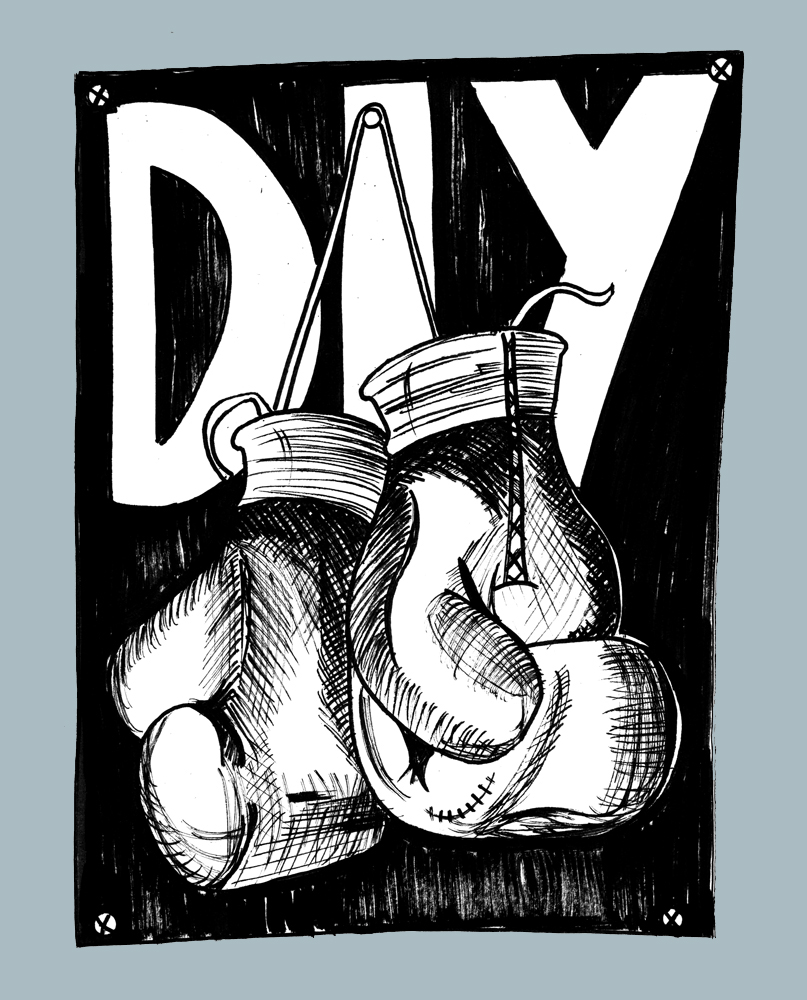
Today, the greek government’s repressive tactics are focused on cleaning up every neighborhood where free expression threatens the systematic control of the state.
In 2020, this hunt for individual liberties has intensified sharply. As in France, the sanitary argument justifies all exactions. Even the most terrible and unjustifiable ones. But the movement remains strong and ready to fight because in the common and autonomous creation, there is no room for mediators and bosses.
We thank Sponty and Sedatephobia, wishing them to live their adventures in an always strong and creative way!
Music belongs to the streets.
And the streets are ours!

